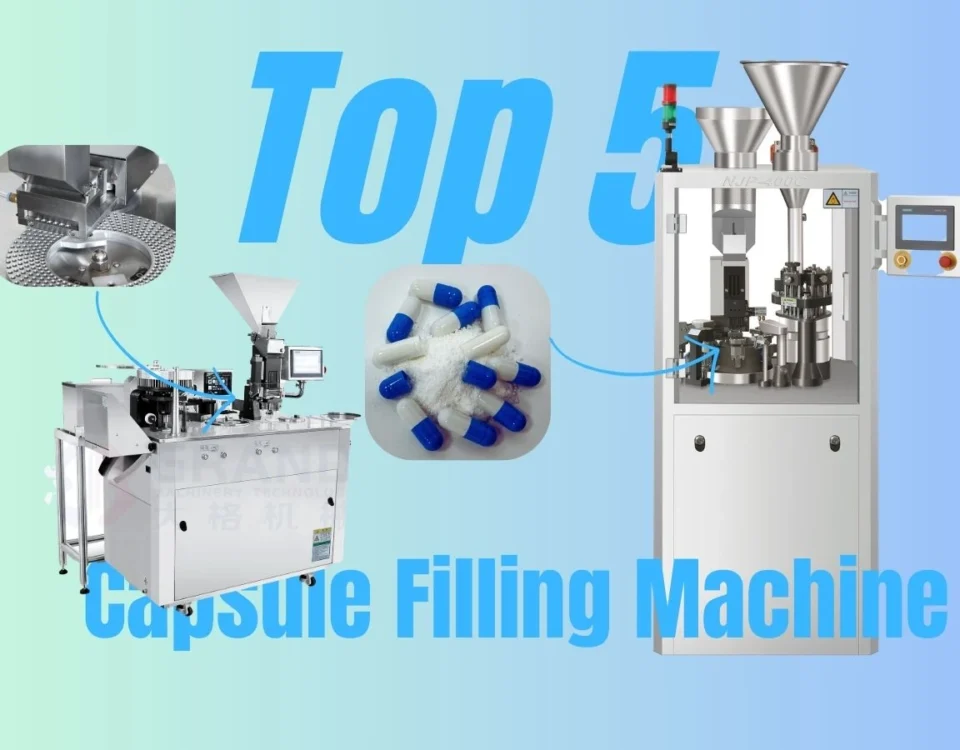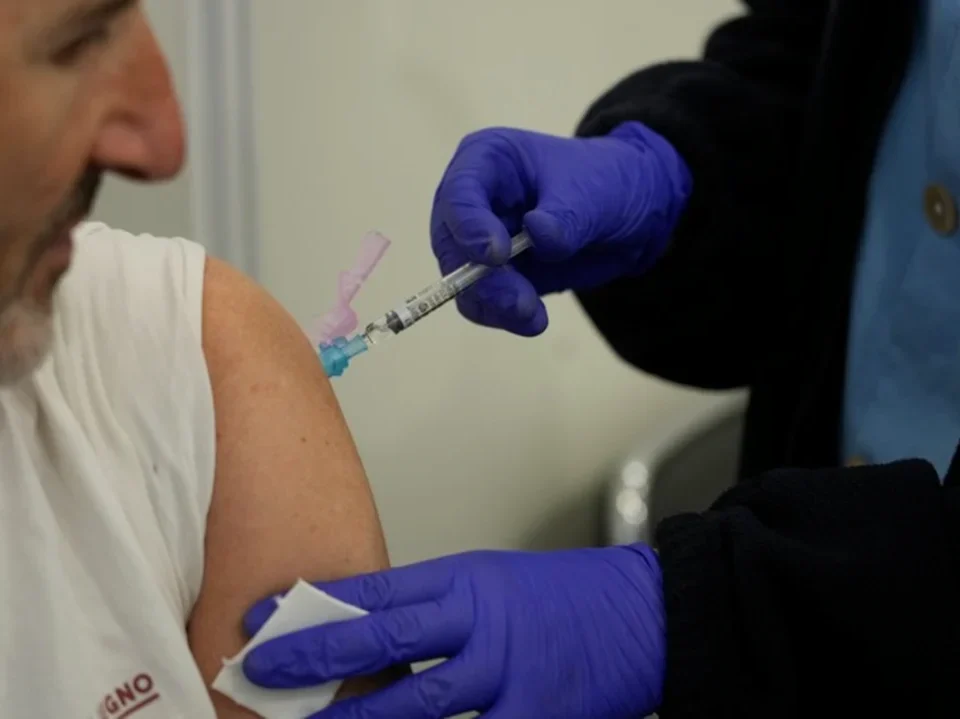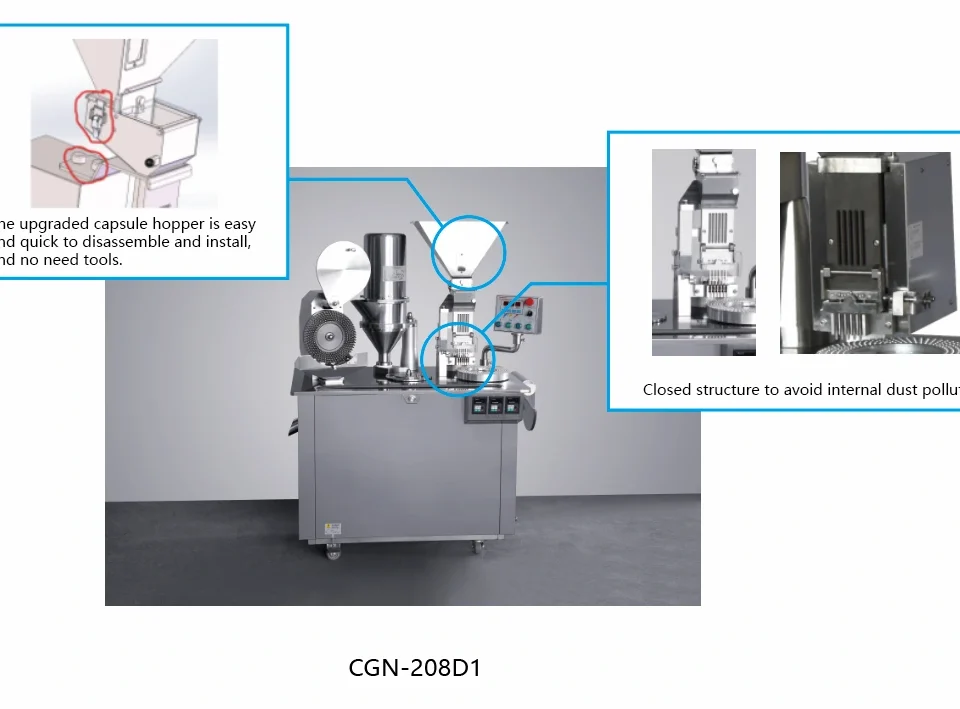
10 Reasons Why You Should Own a Grand Capsule Filling Machine

The Ultimate Guide To Capsule Dosage Forms
8 Factors You Should Consider Before Buying a Capsule Filling Machine

Are you looking forward to purchasing a capsule filling machine? It is one of the biggest investments that any pharmaceutical company can do. However, getting a pharmaceutical machine is not the easiest job you can do. Once you are on the market, you will find different models and types. You should carefully analyze them and pick the right one that suits your production needs. Moreover, it must match your budget as well. Here are 8 factors to keep in mind when looking for that perfect capsule machine.
1. Capsule Type and Size
The very first thing you should consider is the type of capsule you are going to fill up. Along with that, you should also determine the capsule size. You can use a capsule filling machine to fill up:
- Hard gelatin capsules
- Softgel capsules
- Vegetarian capsules
Out of these, gelatin capsules are made out of animal byproducts. They contain a higher volume of gelatin, water and preservatives. You can get them in standard sizes 5 is usually the smallest and 000 is the largest.
Softgels come with a smooth exterior. If you are going to fill up liquids, you need to use them. On the other hand, vegetarian capsules use a cellulose instead of gelatin.
You need to take a look at dosage and density of the contents when selecting a type of capsule as well. Larger volumes would require bigger capsule sizes. Based on the selected capsule, you can pick a machine to fill up.
2. Production Output Requirements
Manual capsule filling machines have an output of around 100 capsules per minute. On the other hand, semi-automatic capsule filling machines can offer up to 100,000 capsules per hour. A semi-automatic machine is mostly okay for your needs. But if you have a higher production output requirement, you may proceed with a fully automatic machine.
However, you need to keep in mind that semi-automatic capsule production machines come at a higher price tag. This is where you need to compare your return on investment.
Automatic capsule fillers are ideal for pharmaceutical producers filling thousands to millions of capsules daily. Lower capacity semi-automatic or manual fillers may suit nutraceutical companies with smaller runs.
3. Level of Automation
Capsule filling machines come in manual, semi-automatic or fully automatic versions. Manual capsule fillers involve entirely hand-operated filling. This is where the operator separates capsules by hand. Then you will need to fill powders/liquids manually and close capsules by hand. They allow small batch production with maximum flexibility. That’s because you will have to spend a lot of time filling up the capsules through this method.
Semi-automatic machines automate some functions in the capsule machine. They include dosing and tamping but require manual capsule loading/unloading. Such semi-automatic machines offer faster outputs for small to medium batches. Fully automatic capsule fillers integrate all functions. You can use them to automate:
- Orienting of the capsules
- Capsule filling
- Closing and ejecting of capsules
As a result, you can proceed with producing high volumes with speed and precision. Automatic units are ideal for large pharmaceutical and neutraceutical production runs.
4. Adjustability and Customization
It is better if you can spend to buy an adjustable capsule filling machine. Then you can accommodate different capsule sizes. In other words, you will be able to have better production flexibility.
It is a good idea to pick a machine that allows easy size changeovers. Moreover, you can also pick a machine that offers additional dosing stations. Such customized features can make your life easy as you produce capsules.
5. Powder/Liquid Handling Capabilities
You need to keep the type of capsule filler in mind when selecting a filling machine. It can be:
- Powder
- Liquid
- Combination of both
To fill up a capsule with powder, it requires a special system. They will enable filling up the powder precisely into the capsule. Moreover, these systems make sure that the dry powder remains consistent in the capsules.
On the other hand, liquid capsule fillers come with a pump and nozzle system. They inject the liquids directly into capsules. These machines keep track of accurate filling volumes at all times.
Some advanced capsule fillers handle both powder and liquid filling. Alternatively, you can purchase separate powder and liquid capsule filling machines.
6. Cleaning and Maintenance Needs
After getting the capsule filling machine, you will have to clean it regularly. Some of the machines require manual cleaning. But it is better if you can invest in a machine with automatic cleaning. They have the Clean In Place (CIP) technology as well. This allows you to clean the machine without disassembling it.
7. Electrical Requirements
Based on the region, you will either have 110V or 240V at your production plant. You need to pick a capsule filling machine that you can operate as per the electrical input you can provide.
If you operate in an area with unstable electricity, always go for a system with a UPS. Then you will be able to overcome blackouts and ensure consistent production.
8. Investment Budget
The type of capsule filler suitable for you ultimately depends on your production scale and budget. Manual and semi-automatic powder or liquid fillers start around $5,000 to $10,000. Fully automatic pharmaceutical-grade capsule fillers range from $50,000 up to $500,000+ for high-end integrated machines with custom features. Define your budget constraints during the selection process to narrow viable options. Weigh required automation levels against capabilities and cost.
Getting a capsule filling machine is an investment. This is why you need to evaluate ROI when making a decision.
Frequently Asked Questions
Now you have a basic overall idea about buying a capsule filling machine. However, you may still have some unanswered questions on your mind. Follow this section and we will share answers to those questions as well.
What is the cost of a capsule filling machine?
It depends. If you buy a manual capsule filling machine, you don’t have to spend a lot. However, semi-automatic and fully automatic capsule filling machines are quite expensive.
For example, a manual capsule filling machine can cost you around $10,000. On the other hand, fully automatic pharmaceutical grade machines can cost more than $500,000. You should be ready to invest around $50,000 to $100,000 to purchase a decent capsule filling machine. Define your budget beforehand and then look around for the options. It will make life easy to pick the right product.
Should I buy a used capsule filling machine?
If you can’t afford the cost of a new capsule filling machine, going for a used one may seem the best option. However, there are benefits and drawbacks to evaluating when making this decision. For example, you will need to see the condition of the capsule filling machine you get.
Some of the pharmaceutical companies mandate new equipment only. If you are working with such a company, you should be willing to invest in a new machine. But if such a requirement is not there, you may start off your business with a used capsule filing machine. It will help your business save some capital. You can upgrade to a newer and better one as your business proceeds.
What production rates do different capsule filling machines offer?
Production rate is one of the key factors that determine your choice of getting a capsule filling machine. Some of the prominent production rates you can expect include:
- Manual: <1,000 capsules/hour
- Semi-automatic: 1,000 - 40,000 capsules/hour
- Automatic: 40,000 - 100,000+ capsules per hour
It is completely up to you to evaluate these production rates and pick the right filling machine. Then you can use it to run your business without any issues.
How quick are size changeovers on capsule machines?
The changeover time of a basic capsule filling machine is around 15 minutes. However, semi-automatic capsule machines can offer up to two hours. A good thing about semi-automatic capsule filling machines is that they offer tool-free change parts. As a result, you can experience faster changeovers between the runs.
What tolerances to capsule fill weights can I expect?
At the time of buying a capsule filling machine, you need to be aware of filling weights as well. The average weight tolerances of a capsule filling machine include:
- ±5-10mg for powder filling
- ±50mg for liquid filling
Tighter ±3mg tolerances are achievable on high precision machines.
How much space do capsule filling machines require?
To accommodate a capsule filling machine, you will need to allocate a space of at least 3x4 feet. However, make sure to provide another 2 feet of perimeter to enable operator access and airflow. Some of the new capsule filling machines offer a compact and modular design. You can easily accommodate such a machine. However, larger automatic machines would require up to 400 square feet.
What safety mechanisms should I follow when operating a capsule filling machine?
A capsule filling machine usually comes with a variety of safety features. They include:
- Finger guards
- Emergency stops
- Light curtains
- Protective covers
- Overload detection and many more
Along with the machine, you will receive safety instructions to follow. Make sure to follow them at the time of operating the machine. Then you can ensure safety and operate the machine.
How should I clean the capsule filling machine?
Basic capsule filling machines require manual cleaning. However, advanced machines offer programmable in-place cleaning systems with advanced fillers. You need to look at your preferences and pick the right machine.




